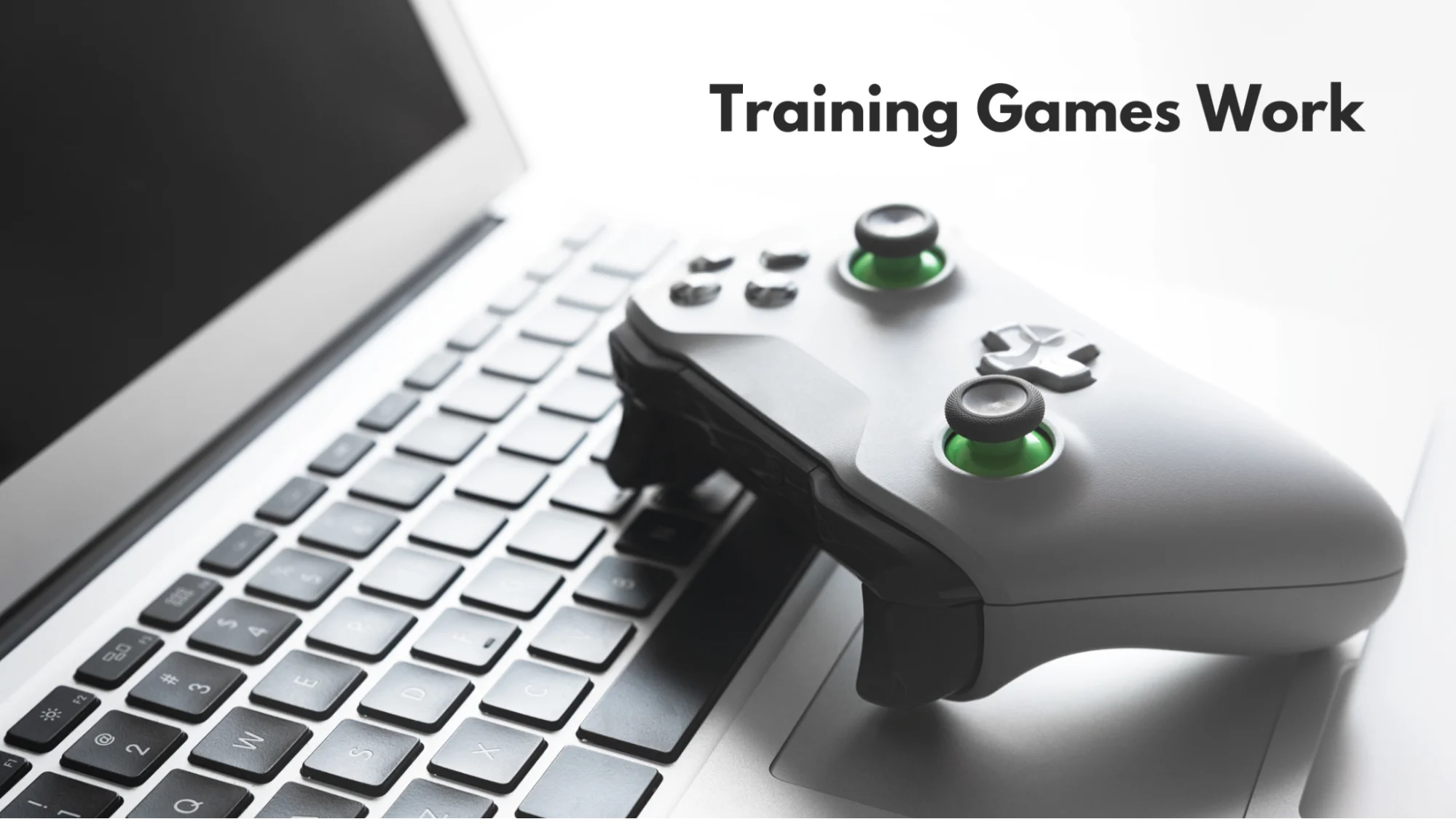4 Game-Based Models To Achieve Your Corporate Training Goals

As the world changes, organisations are constantly on the lookout to embrace the road to a digital-first approach. Game-based training programs transform the long-accepted passive training methods into an active and engaging experience for participants. Adding games to your learning pipeline can be beneficial in helping employees understand processes and behaviours better and ensure that it is retained and applied.
Advantages Of Game-Based Solutions
Game-based solutions have emerged as a remarkable tool for hiring, onboarding and training, among other HR processes. They help test, train and track participants better than traditional methods, thus, modernising the process. According to a study, researchers found that game-based modules result in higher retention, greater procedural knowledge and a heightened sell-efficacy. Here are some more advantages that game-based solutions bring into the picture.
Seamless Process With Customised Solutions:: Game-based solutions make the process mobile-friendly and backed by data. This helps organisations manage more participants without the hassle of additional paperwork. Moreover, these games can be customised to the business needs and goals, helping organisations take a more tailored approach.
Engaging For All: Traditional hiring, onboarding and training methods are often considered boring as they use age-old methods. Game-based solutions make the process more engaging for all involved, whether it’s the candidates, employees or employers. This helps create an active pipeline that is beneficial for everyone.
Location No Bar: Gone are the days when you had to come in for an interview, sit in a conference room for induction ceremonies or attend meetings for corporate training. Now, everything can be done remotely from the palm of your hand. Game-based solutions are mobile-friendly, helping participants join in from anywhere in the world.
Game-Based Models That Can Be Used In Learning
Game-based solutions open up endless opportunities for organisations to build a training pipeline that helps employees use multiple skills and learn about the values and processes of the company. While there are numerous models that organisations can incorporate in game-based training, here are the four models that you should know about.
Exploration Games for Decision Making
Decision-making is a critical skill that organisations look out for in their employees. Therefore, organisations are often looking to test the skill through their training programs in order to evaluate how the participant fares when it comes to assessing the situations and making decisions that can impact others. In game-based training, exploration games offer players a chance to role-play as the protagonist and navigate through various scenarios that are nonlinear and change as per the decisions made.
Using exploration and situation games in your corporate training program helps fortify the concepts and values of the company while easing out the assessment process. These games can be beneficial for circumstances that require quick-thinking and effective decision-making. These can include missing consignments, cyberattacks, and access control, to name a few.
Strategy Games for Analytical Skills
While working, many employees are required to assess situations and make decisions without constant supervision. But incorrect analysis can result in grave losses for the organisation. Therefore, adding strategy training games for employees in the training and development program can help organisations effectively test their employees’ analytical skills. Strategy games can include puzzles, solution-driven pursuit and other challenges. Through these strategy games, employees are prompted to quickly analyse the situation and make the best possible decision while reacting to other’s decisions as well.
In strategy games, players are tasked to analyse the situation, prioritise tasks and then differentiate and delegate responsibilities wherever required. They are really efficient in tracking employee knowledge, as they help organisations make better decisions on whether or not an employee can function without constant supervision.
Memory Games for Knowledge Retention
After conducting employee training and development programs, one of the results that organisations hope for is knowledge understanding and retention. Learning new knowledge while retaining older information is a crucial employable skill. To challenge the user and reinforce learning, memory game-based training is a great process to undertake. These games can task players to test their memory by asking them to match items, retain information, name items from memory and identify the differences and resemblances between different things. These games also work well when combined with data-driven concepts included in the day-to day activities of the employees.
Employees go through a more engaging and active learning process, helping them understand and retain the information better. On the other hand, traditional training methods often result in short-term information recall periods.
Role-Play Games to Demonstrate Application
Many roles require constant interaction with customers or key stakeholders. With multiple parties involved, there are bound to be certain challenges that need the employee to apply their interpersonal skills and turn the situation in their favour. Therefore, it is essential that the training program incorporates cause-and-effect scenarios that teach employees how their actions need to be ideal.
Role-playing games often include storylines that move according to the player’s actions, putting weight on their choices. Players must thoroughly understand the situation and apply critical thinking to make the most beneficial choice for them and their employer. These games can be beneficial while training for specific jobs and can help them assess the problem better, make calculative decisions and prepare for the consequences of their actions.
Final Thoughts
Game-based solutions are now transforming how organisations hire, onboard and train their employees. Instead of incorporating the traditional training and development programs, organisations are now looking to make the process more engaging and mobile-friendly to motivate employees and encourage active learning. Moreover, game-based solutions make the process easier, customisable and scalable as per the changing business goals of your organisation.
With Talent Litmus, you can get data-driven and AI-powered hiring, onboarding and training solutions tailored to your organisation’s vision. Enable game-based training with Talent Litmus and join renowned organisations such as Ashok Leyland, Dabur, HDFC Bank, TVS and Asian Paints.
Contact Us Today!